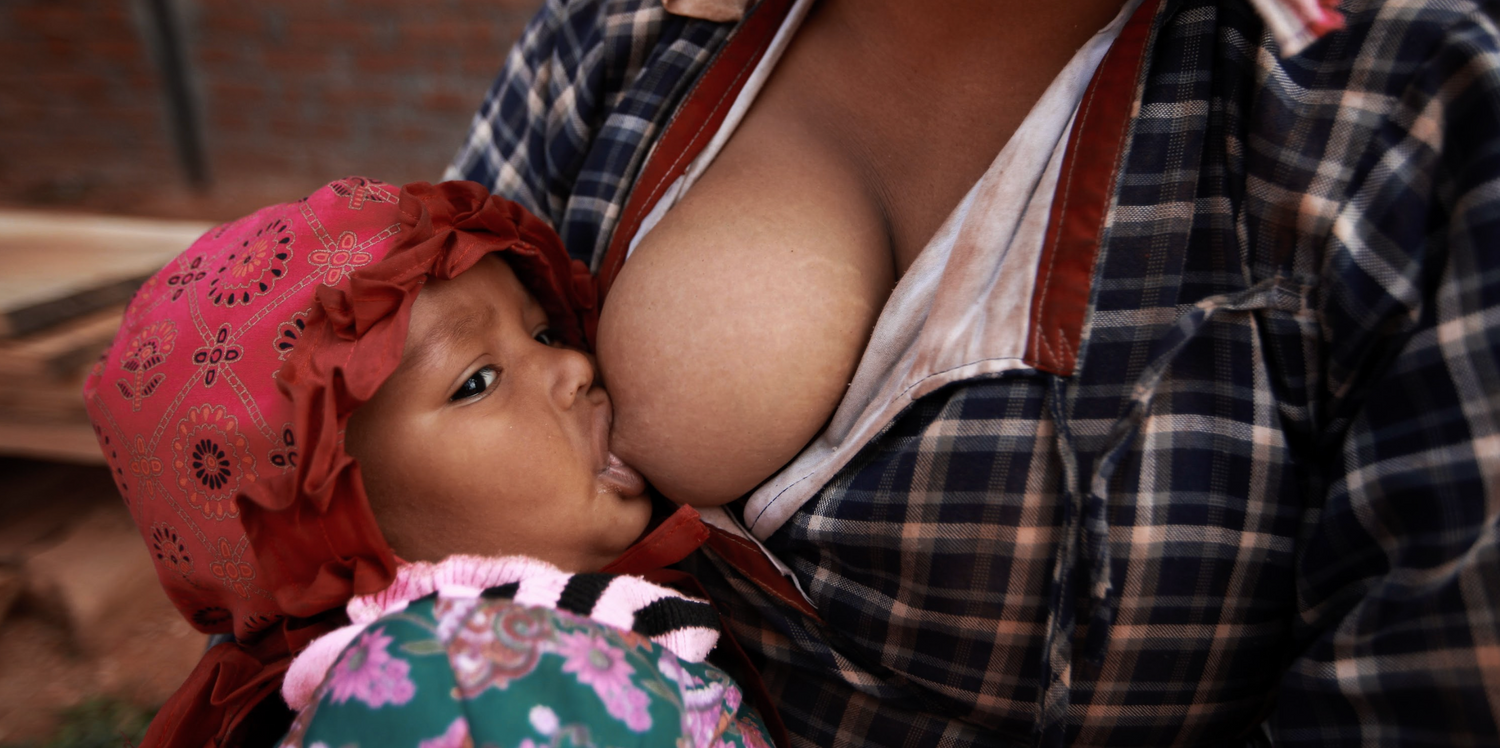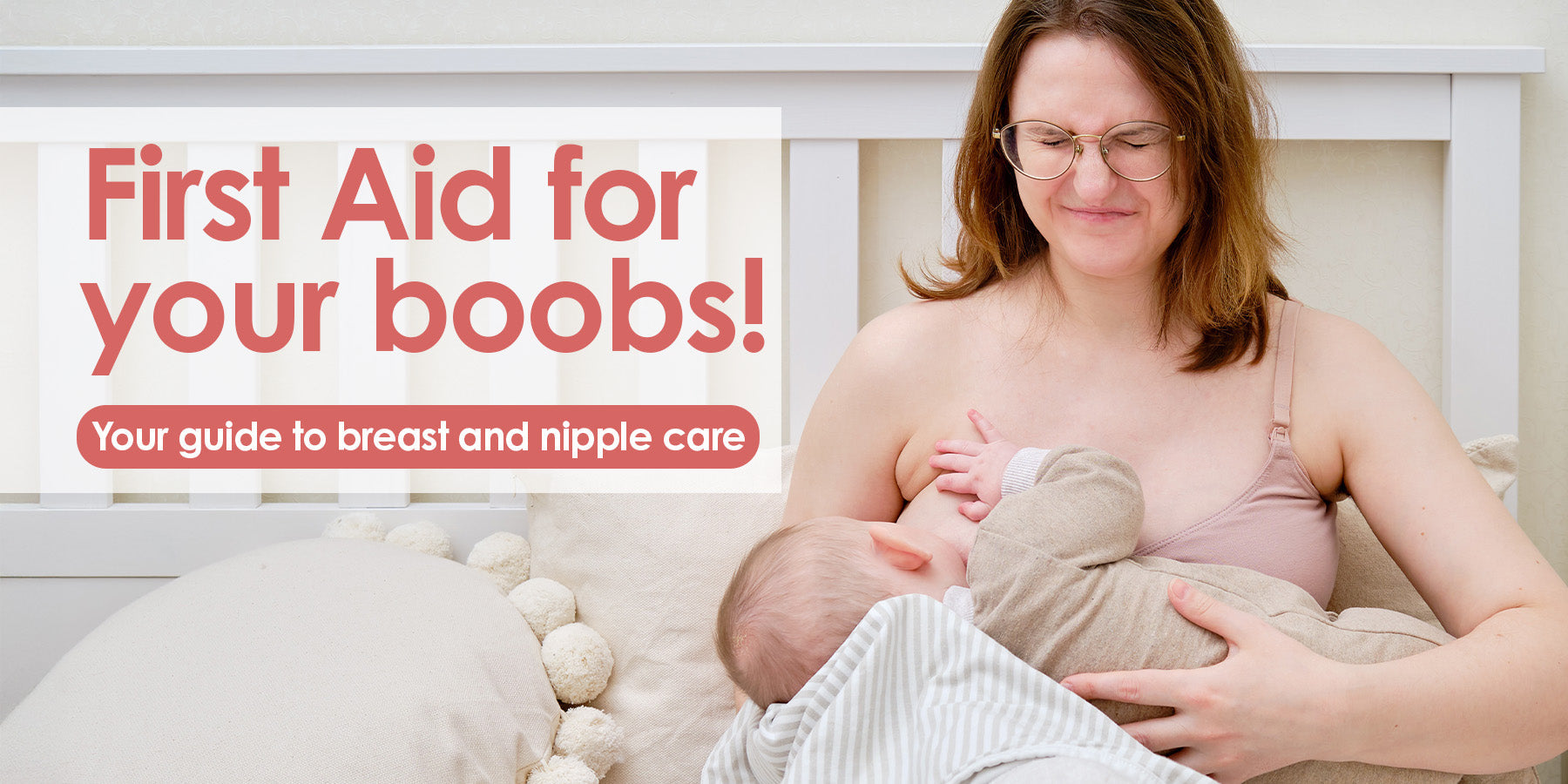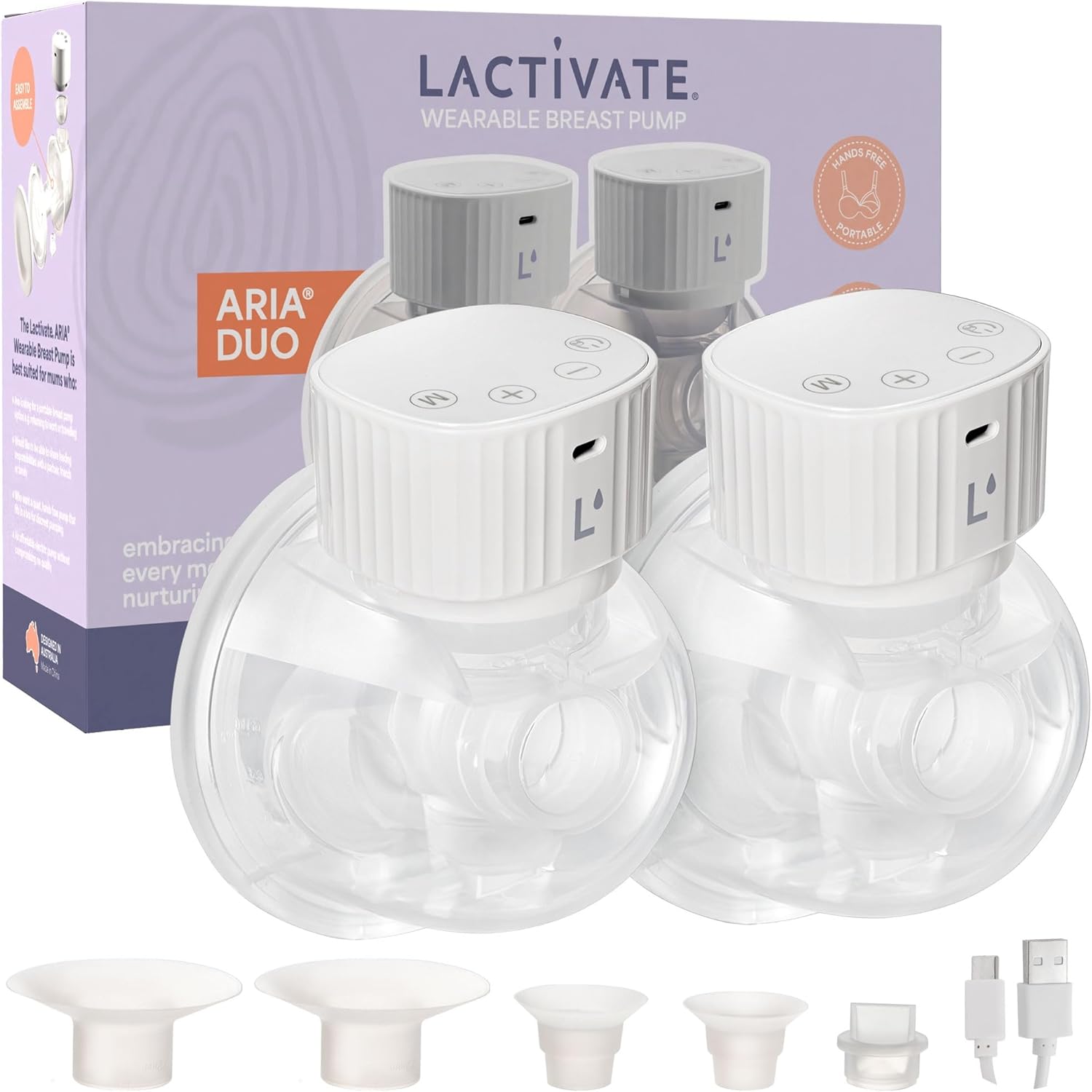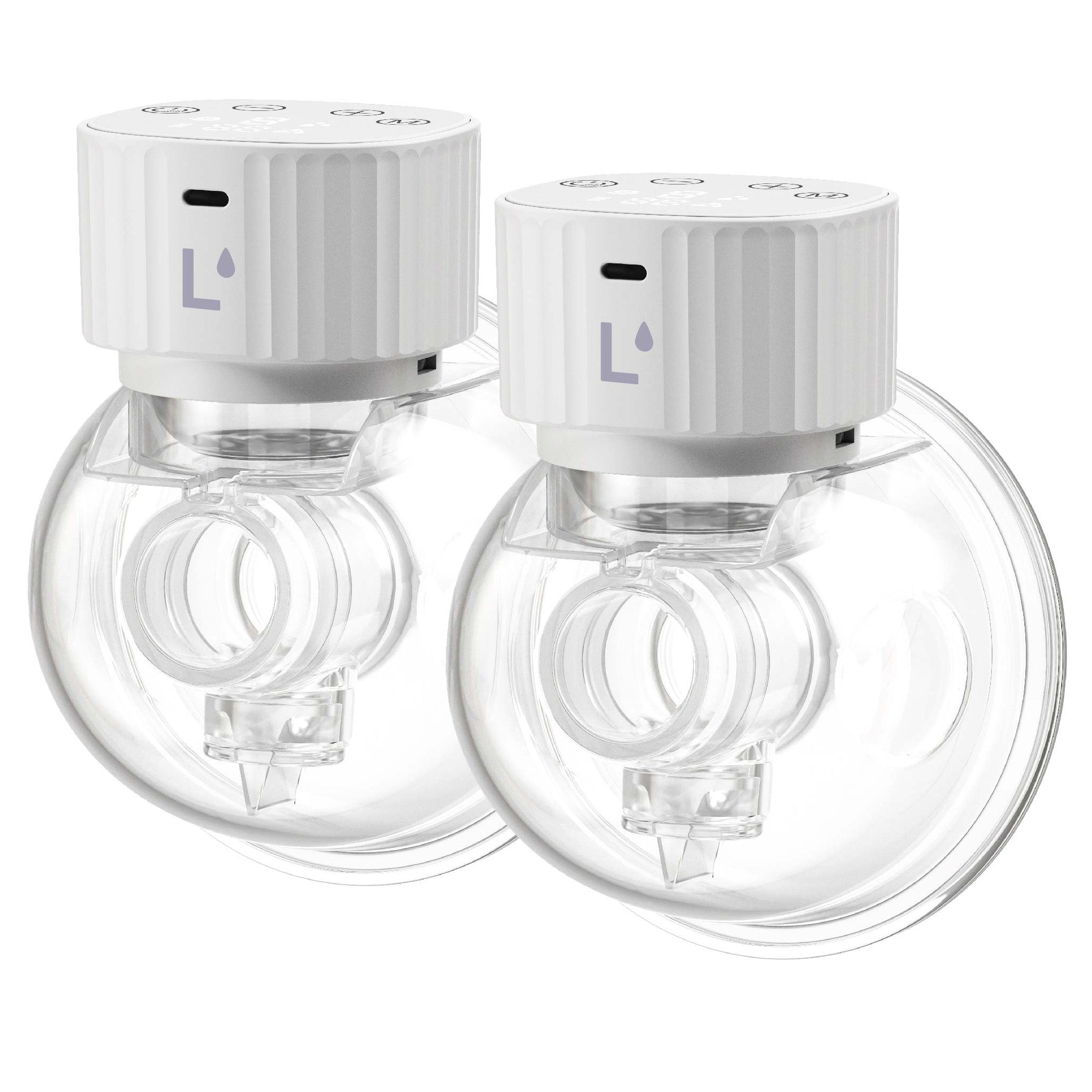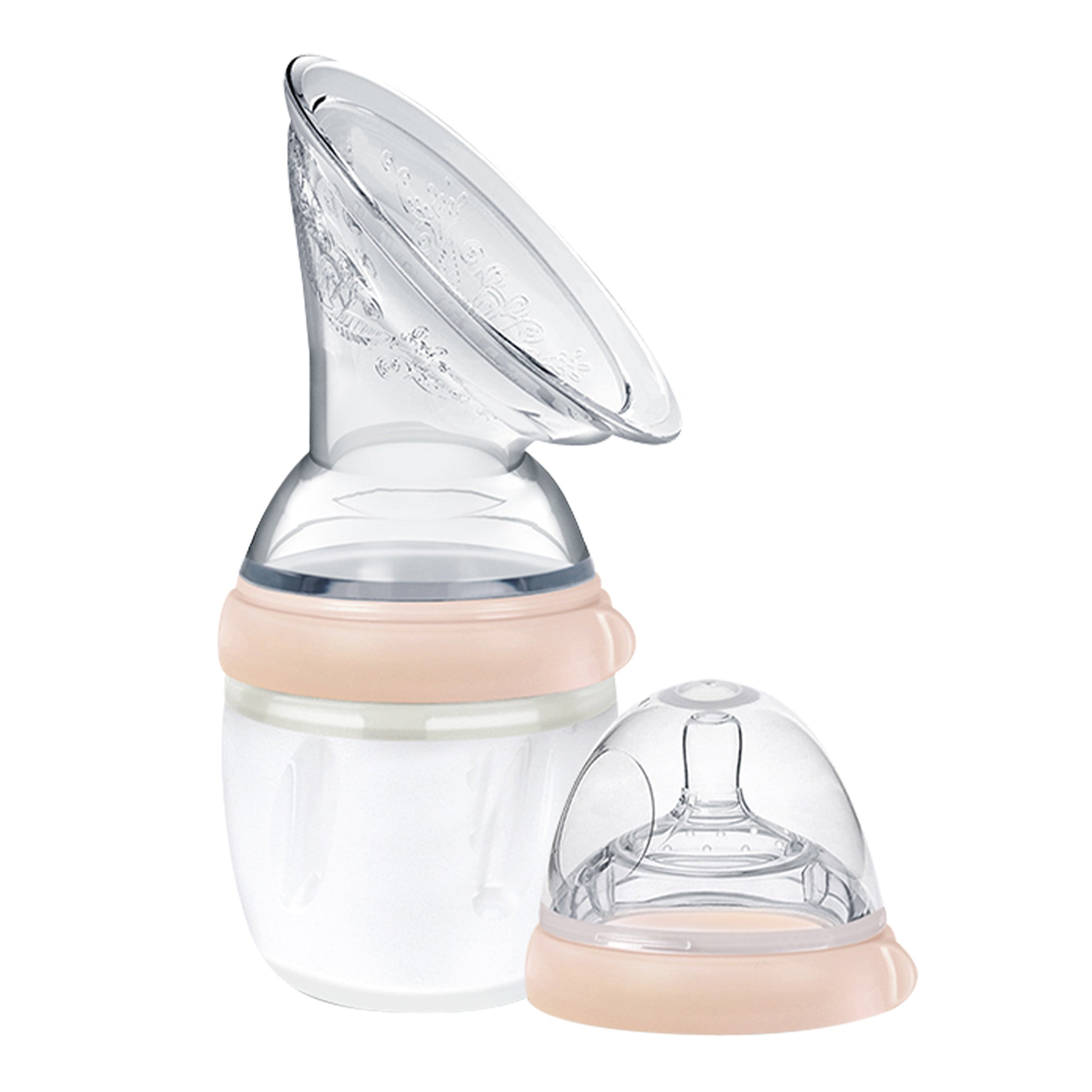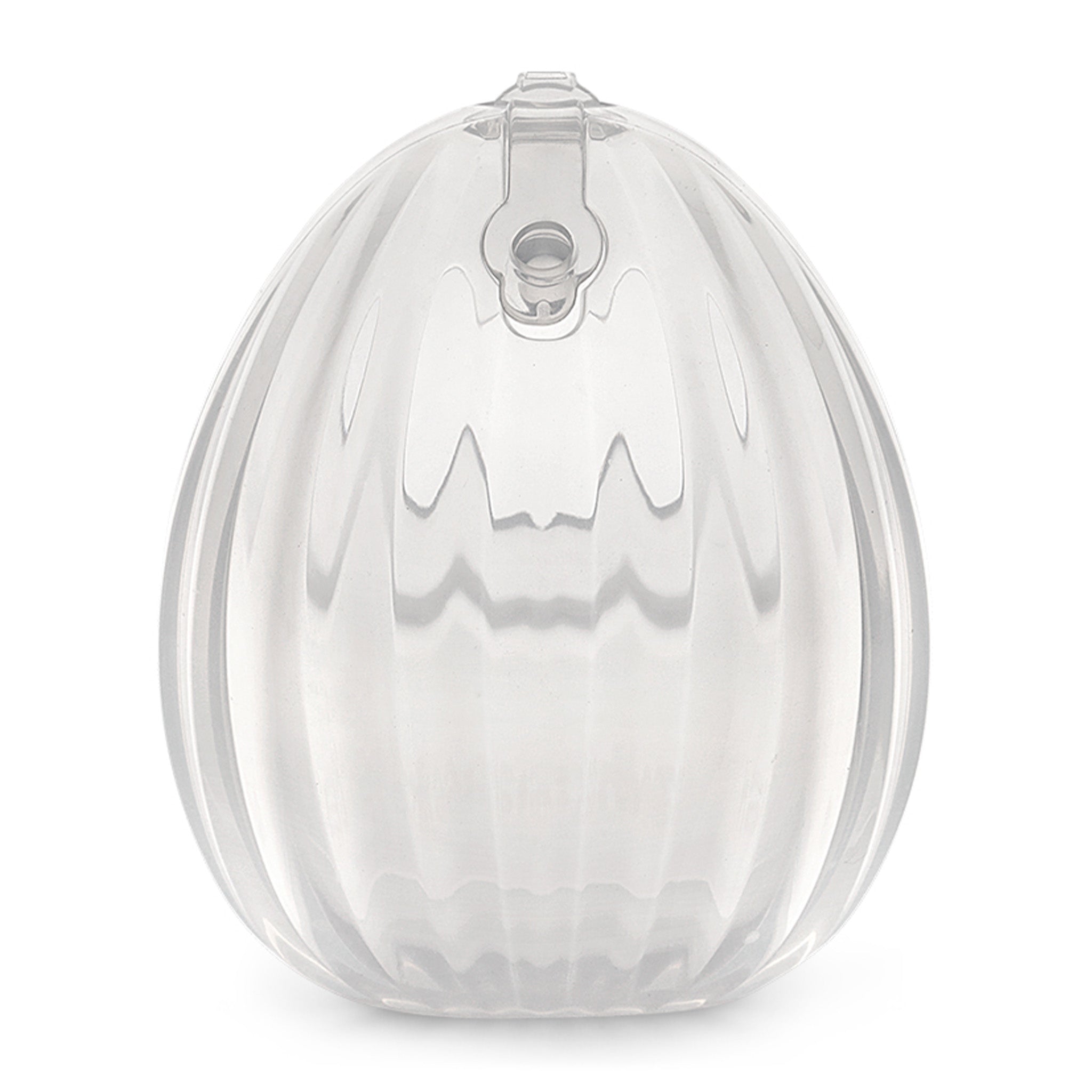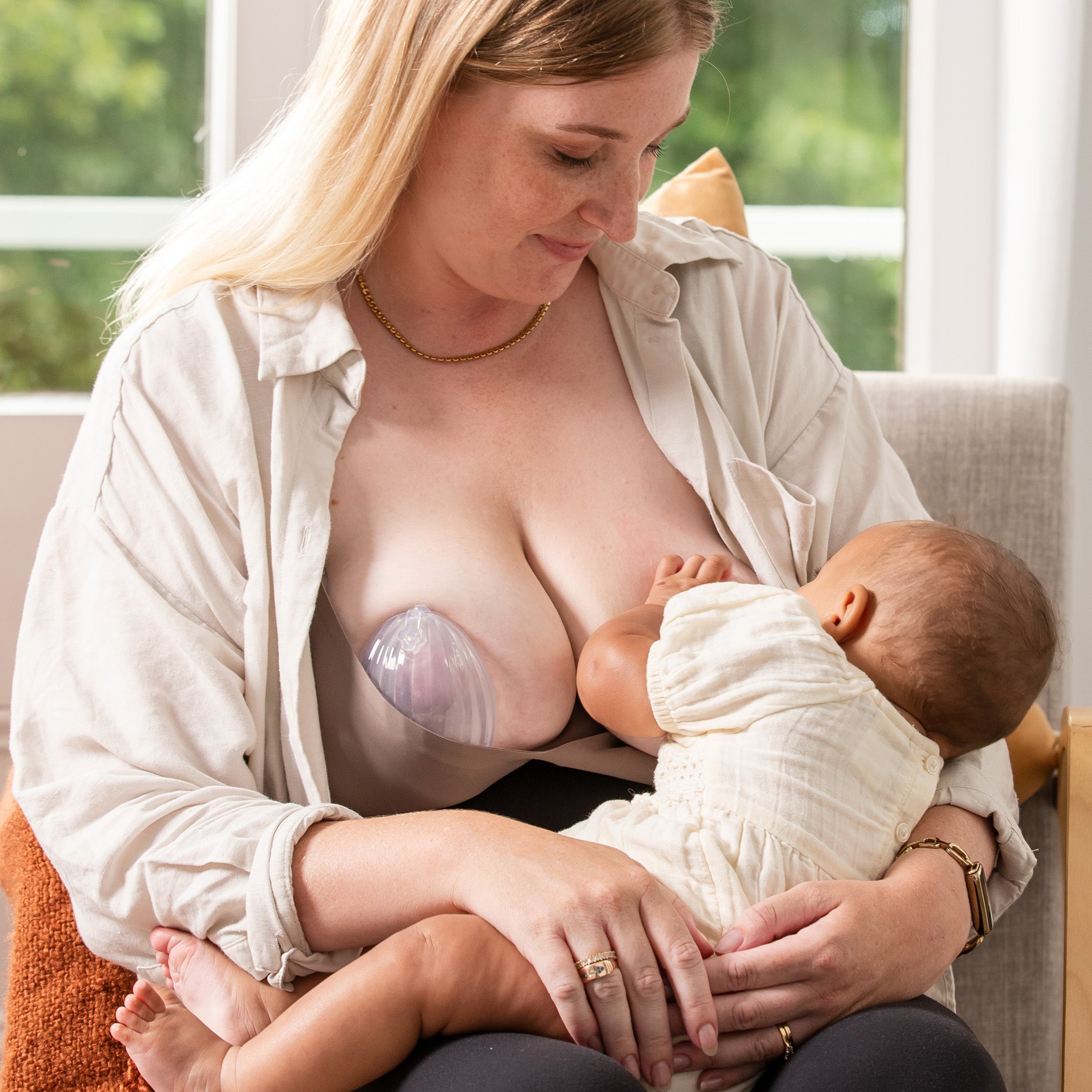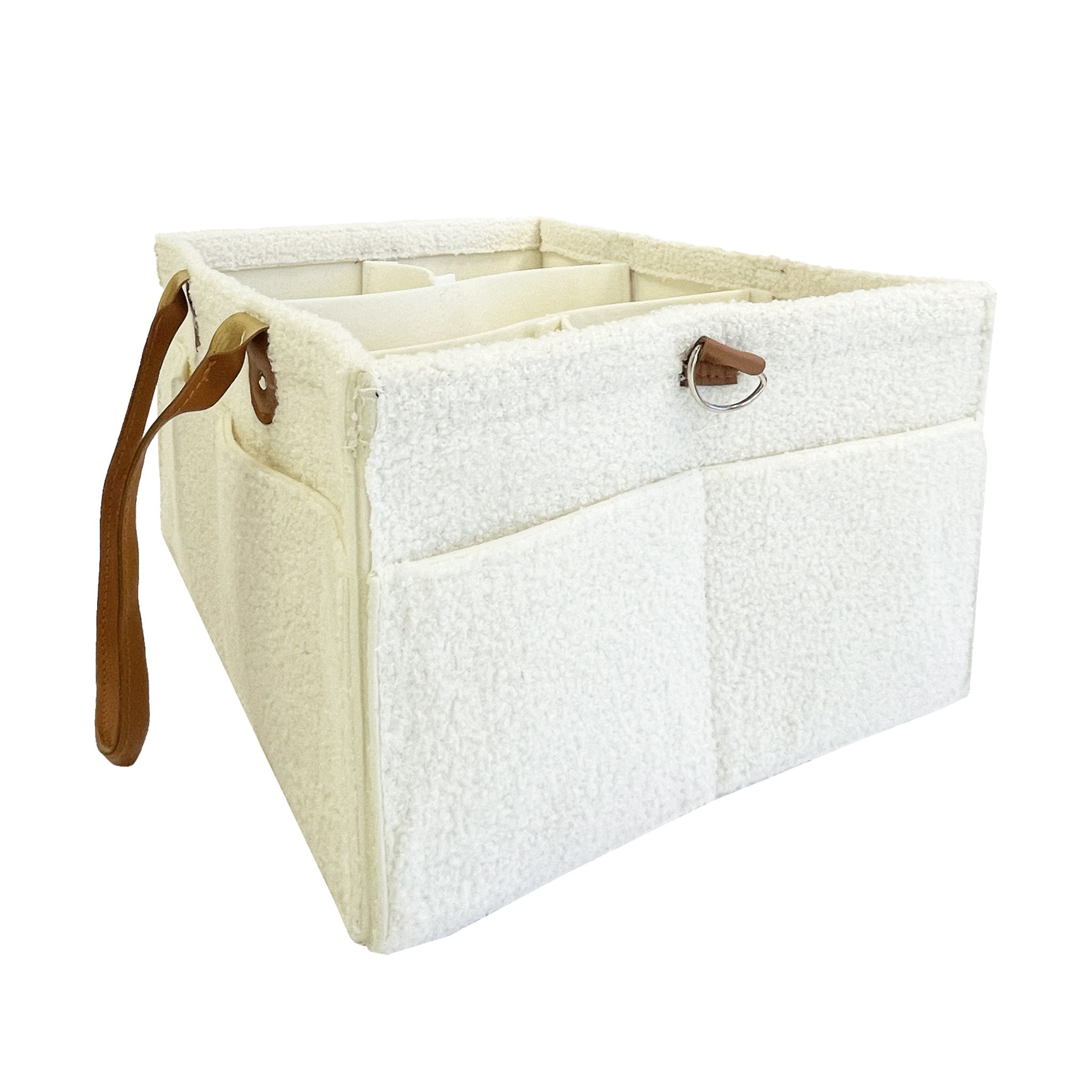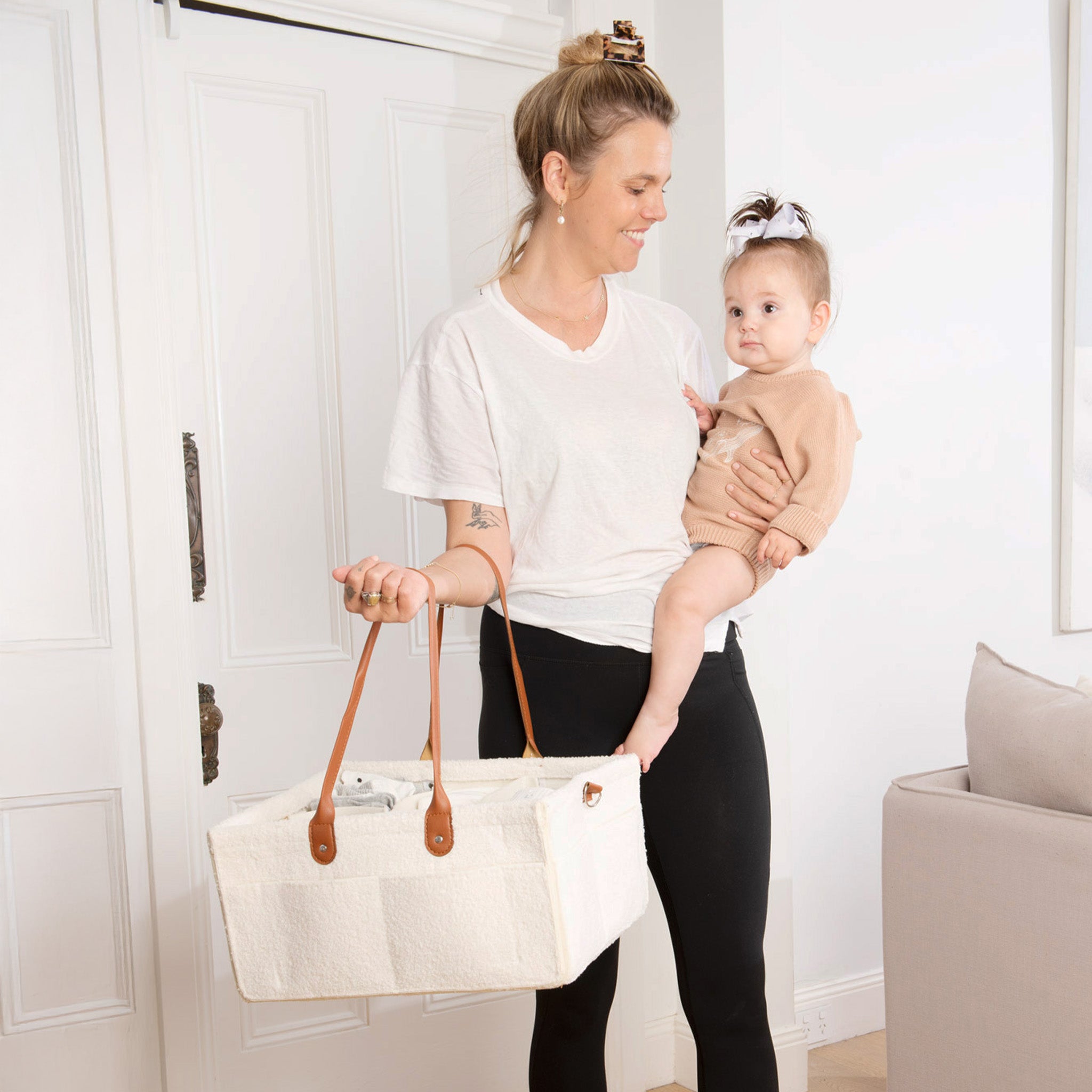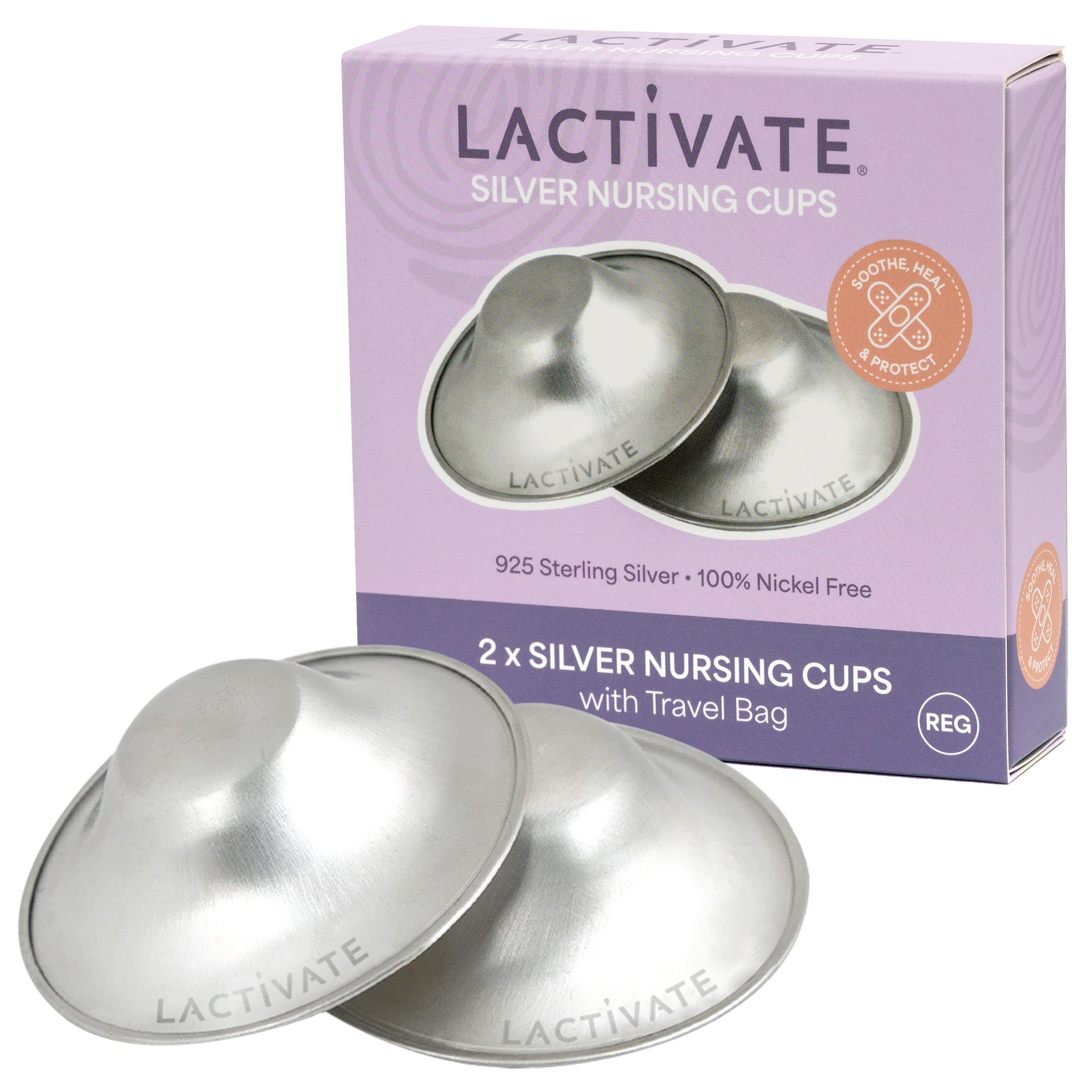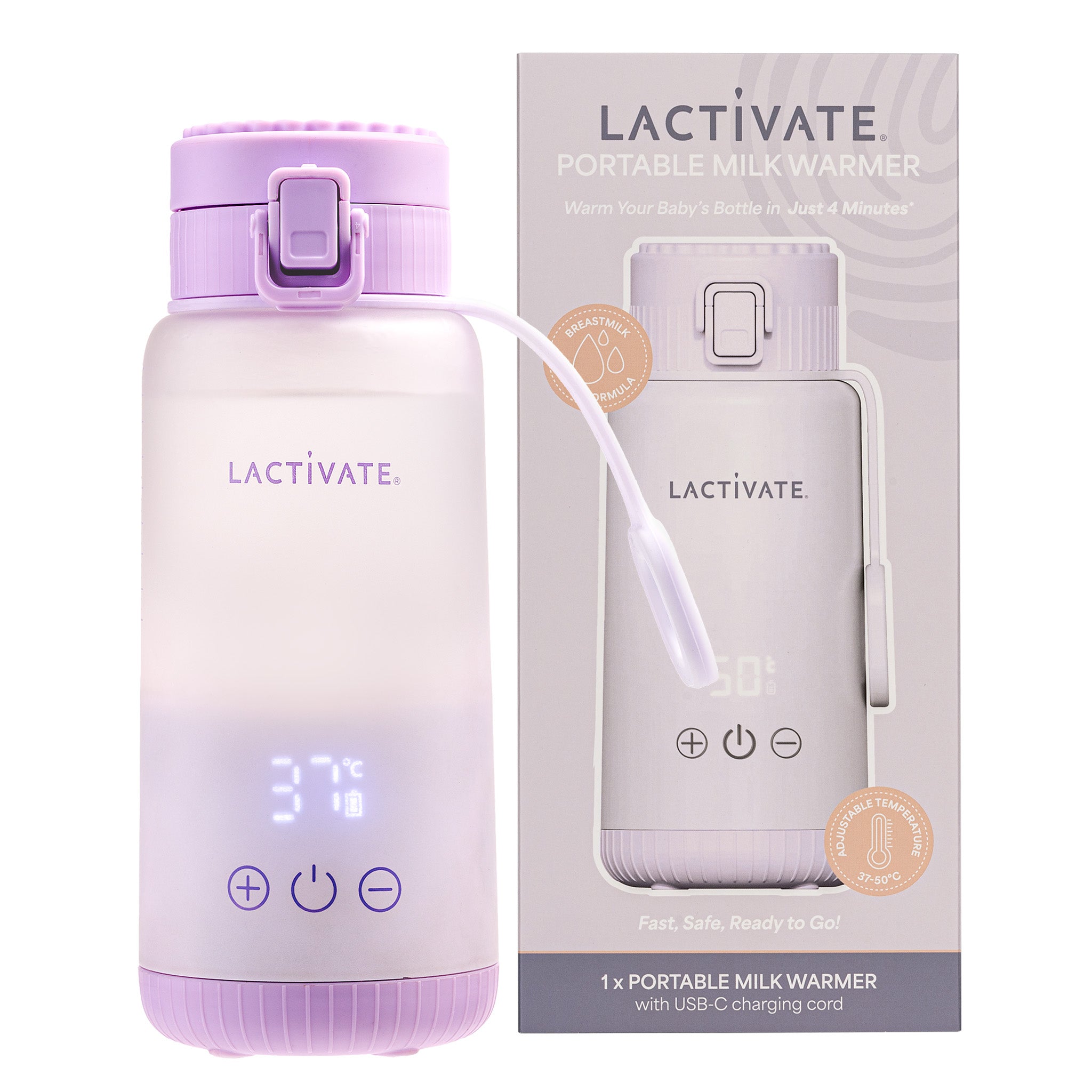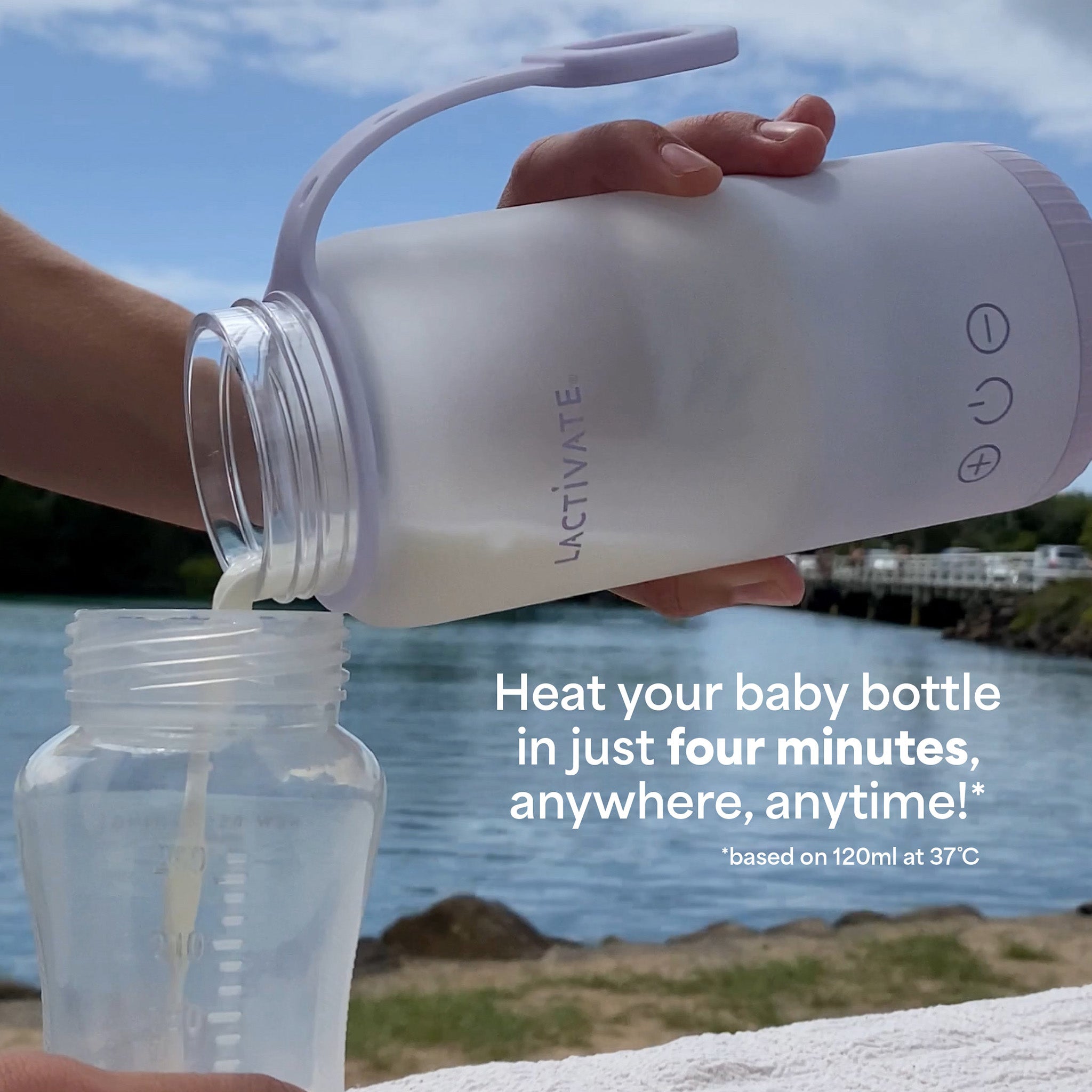If you've been researching breastfeeding and pumping, you've likely been overwhelmed with the amount of information out there about establishing breastfeeding, overcoming struggles, and dealing with undersupply/oversupply. But what about when breastfeeding or pumping comes to an end?
We've put together a When, Why and How of weaning for you. Whether you haven't started your breastfeeding journey yet, or are not even thinking about weaning in the near future, it's a great idea to have an idea how why and how mothers wean from breastfeeding / pumping.
What is weaning?
Weaning is when you stop supplying breastmilk to your child, whether directly from the breast or via bottles. Choosing when and why you should wean is a very personal decision for a mother, although sometimes external factors lead to wean earlier than planned.
When and why do women choose to wean?
Babies require breastmilk and/or formula until at least 12 months of age, after that cow or plant based milk is a suitable alternative if you wish to end breastmilk / formula feeding. For that reason many breastfeeding / pumping mother's choose to wean once their child is 12 months old.
Some mothers choose to practice extended breastfeeding and decide to wait until their child decides that they are ready to wean. Many extended breastfeeding mothers go on to breastfeed during subsequent pregnancies and may ven tandem feed (breastfeeding two or more children of different ages at the same time).
There are also a number of personal reasons why a mother may decide to wean (whether before or after 12 months). These include:
- Wanting to fall pregnant again, as breastfeeding can hinder ovulation for many women
- They are pregnant again. Some women have difficulties maintaining supply, particularly if they are struggling with severe morning sickness or Hyperemesis gravidarum. A pregnant mother may also want a break from breastfeeding and a chance to feel ownership of her body again before she begins breastfeeding her next child
- Wanting to feel like her body is her own again
- No longer enjoying breastfeeding
- Wanting the convenience of other feeding methods
- Returning to work and deciding not to undertake pumping breastmilk
Other factors that can cause you to wean
For many mothers weaning is not done by choice. There are a number of external factors that can end your breastfeeding/pumping journey before you planned. These factors include:
- Ongoing breastfeeding issues such as clogged ducts, mastitis, pain and discomfort
- Needing to start medication or treatment that is not compatible with breastfeeding
- Prolonged illness, health issues or extreme stress that impacts on milk supply
- Child has allergies that are better handled with specialty formulas
- Unplanned long period of time away from the child
- Child no longer interest in breastfeeding / breast refusal
- Having difficulty pumping and maintaining supply while away from the child (such as at work)
- Occupational hazards. If your work involves exposure to harmful chemicals imluding but not limited to chemicals used in beauty salons and dry cleaning, chemotherapy drugs or ionising radiation, or exposure to smoke or fires, there is a risk of carcinogens being present in your breastmilk for a period of time afterwards. While workplaces should have procedures in place to reduce exposure, such as personal protective gear, in some circumstances that may not be sufficient enough to reduce the risk
- Breastfeeding difficulties are too taxing on your mental / physical health
All reasons to wean are valid and every mother's decision should be supported, both by their family and community, and healthcare professionals. It's okay to simply not like breastfeeding anymore. It's okay to want to put your physical / mental health first. It's okay to want to feel like you have your body back to yourself.
We asked fellow mums what reasons led them to wean from breastfeeding and here are some of their responses:
18 months. Breastfeeding & pregnant with #2. Need body back for a bit so slowly weaning.
- Jessie
Still breastfeeding on wake up & bedtime. Just turned 2. Not sure when weaning will happen
- Katie
I'm a firefighter. To go back to work is carcinogenic so I have to stop
- Leonie
Wanting my own body back & so grandparents can babysit! Couldn't feed bub and the freezer
- Milly
How do I go about weaning?
It is usually recommended to take weaning slowly, not just as it can be a big adjusted for both yourself and your child, but because it helps avoid full painful breasts and reduces the risk of blocked ducts and mastitis.
You can start by dropping the breastfeed that your child seems least interested in, which may be around a large meal or a time when they are usually most distracted, like lunch time or regular play time in the park. If the child seems to be adjusting, continue to drop or decrease the length of another feed every few days.
If you are mainly / exclusively pumping, you will follow a similar reduction in expressing. You may start by gradually reducing the amount of time you express each time, before dropping pump sessions one by one. Exclusive pumper and Milkbar Mama Danielle at @to.the.pump.and.back shared her process of weaning from the pump on her page. Part 1. Part 2.
If your child is under 12 months old you will be replacing / supplementing these feeds with formula. Some babies will take to formula without issue, others may need some help. If your baby is rejecting formula, try mixing a small about of formula to pumped breastmilk, and with each feed slowly increase the ratio of formula to breastmilk. This can help ease them into the taste and consistency of formula.
If older than 12 months you can choose to introduce cow/plant based milk or an age appropriate formula. It's best to seek advice from your healthcare professional about which milk alternative is best for your child.
While you are weaning, be aware of engorgement and lumps in your breast. If you become engorged you can hand express or use a manual pump like the Haakaa Silicone Breast Pump to relieve the pressure, but it is essential that you DO NOT empty your breast. Emptying your breast will signal your body to rebuild your supply. Make sure to also massage out any lumps that you find.
Top Tips:
- Take it slow, it is usual for weaning to take several weeks
- Only express enough milk to relieve engorgement
- Use breast pads to catch any leaking
- Use cold packs such as our Lactivate Ice & Heat Packs to get relief from engorgement
- Wearing a tight bra such as a sports crop top can help hinder milk production
If you need to stop breastfeeding very quickly or immediately, seek advice from your medical professional.
For a more in depth how-to and problem solving tips we suggest the Australian Breastfeeding Association page on weaning here.
What should I expect while weaning?
You may experience mood changes such as waves of depression or anxiety, particularly if you have to wean quickly or before you are ready. It is believed that this is due to the drop in the hormones prolactin and oxytocin that occurs during and after weaning. These hormones, which are required for milk production and ejection, both bring with them feeling of calmness, relaxation and love.
You may also feel an abundance of emotions all at once. It is perfectly fine to grieve the end of your breastfeeding journey whether prematurely or not, while at the same time feeling relief in having your own body back. Allow yourself to experience these emotions, express them to your family and friends, and know that they are completely normal.
Depending on the age of your child, they may have difficulty with the adjustment too. Breastfeeding is about more than just sustenance - its cuddling, skin-to-skin time, where they can feel your warmth, smell your smell and hear your breathing and heartbeat. Make sure to give your child as many cuddles and one-on-one time if you feel they need it, or you need it! Some kids come off the boob with ease and you're left there crying 'Hey! What about me!!!'
Sources:
CDC page on occupational exposure to chemicals and breastfeeding:
Australian Breastfeeding Association page on weaning:
https://www.breastfeeding.asn.au/resources/weaning
Further reading from our Breastfeeding Resources:

